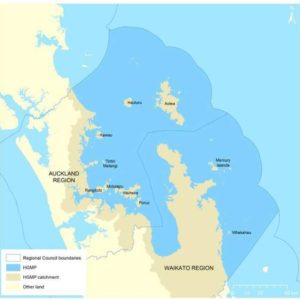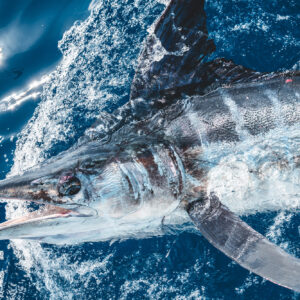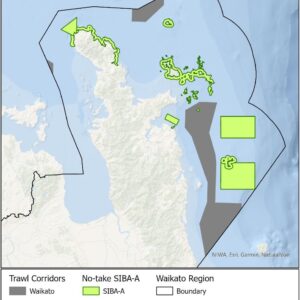Welcome to the FryUp – a regular look back at the week of fishing in the news.
Quality over quantity
The Quota Management System (QMS) is either world class and the envy of other countries or it’s a con, perpetuated on a people who would have had the wool pulled over their eyes.
According to Seafood NZ’s Tim Pankhurst, speaking at this week’s Seafood Conference, says everything is rosy and we should be incredibly pleased with the way the industry is run (emphasis on industry).
“New Zealand’s performance is underpinned by its Quota Management System (QMS), now in its 30th year. That has seen a shift from overfishing, with no limits on catches, to healthy fish stocks where 97 per cent of our annual catch is above sustainable limits set by fisheries scientists within the Ministry for Primary Industries,” writes Pankhurst in the Dominion Post in which he goes on to suggest the catch reconstruction report is a work of political malice designed to embarrass the government.
However, it was the Prime Minister who called time on that point of view at the same conference. It’s not going to be good enough for the industry to ignore concerns about overfishing and dumping.

“It is partly about the PR war,” he said. “There are plenty of groups who are going to want to take a different perspective, show you in a different light and turn consumers against you.”
While we might argue with the idea that this is a PR war, the PM is quite right. Here at LegaSea we will be expressing a different point of view not out of malicious intent as Pankhurst suggests but because we want to see fish in the sea for our children and our grandchildren.
There’s another message in the PM’s comments that resonates loudly with us here at the FryUp. Consumers are expecting more from their fishing industry than low-value product. We’ve long argued that our fish are worth more than being served up as cat food or the like, and that if we are to grow a sustainable industry we need to move up the food chain.
As the Prime Minister said, in the next decade Asia’s growing middle class will want to buy quality products.
“They want to understand absolutely and completely that you care about the sustainability of that. They are going to buy the story as much as they buy the product. That’s ultimately what it’s all about.”
NZ Herald – John Key concedes criticism by fisheries bosses over consultation but sounds own warning
Stuff – Quota system underpins world-leading seafood industry
Stuff – We’re catching fish but not value: why the QMS needs reforming
Stuff – Barry Torkington: Fishing’s monopoly structure stifles growth
The Two Million Dollar Shark
Speaking of moving up the value chain, in 2009 the tiny island nation of Palau set up a shark sanctuary to protect the gray reef and reef whitetip sharks that inhabit its waters.
Today, the number of divers who come to Palau to swim with the sharks has increased hugely and diver-related tourism accounts for 39% of the country’s gross domestic product of US$218 million, according to a study produced by the Australian Institute of Marine Science.
According to the New York Times, “The researchers concluded that the roughly 100 sharks that inhabit the prime dive sites were each worth US$179,000 annually to the island nation’s tourism industry, and that each shark had a lifetime value of US$1.9 million” which is not bad going for something that would normally end up in a soup dish.

A shark is worth more in the water than the sum of its parts when it’s cut up and sold,” said Matt Rand, director of global shark conservation at the Pew Environment Group, which financed the study.
Our own economic report showed a similar result for New Zealand fishing, albeit spread across multiple species around the country. Recreational fishing brings in $1.7 billion in economic activity and supports more than 8000 jobs across the country.
It’s high time we stopped treating recreational fishing as something without value and started looking at our fish stocks and asking could we do more than just sell this for cat food? I think the answer is a resounding ‘yes’.
NY Times – Priced Off the Menu? Palau’s Sharks Are Worth $1.9 Million Each, a Study Says
Australian Institute of Marine Science – Million-Dollar Reef Sharks
NY Times – Palau vs. the Poachers
NZMRF – Recreational fishing in New Zealand
Under the sea
And finally for those of you who like to spend time on the water, don’t forget that underneath is a whole other world. The tsunami may have passed us by but this guy looks like he’s hungry like, well, a whale.
http://i.imgur.com/iqiexSF.png
Have a great weekend.





